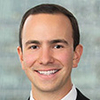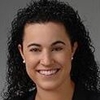Healthcare Finance Transactions: Documentation; Perfecting UCC Interests in Commercial and Governmental Receivables

Course Details
- smart_display Format
On-Demand
- signal_cellular_alt Difficulty Level
Intermediate
- work Practice Area
Health
- event Date
Wednesday, May 10, 2023
- schedule Time
1:00 p.m. ET./10:00 a.m. PT
- timer Program Length
90 minutes
-
This 90-minute webinar is eligible in most states for 1.5 CLE credits.
This CLE webinar will guide counsel to those in the healthcare industry on the unique issues faced when seeking financing. The panel will address how to perfect security interests in commercial and governmental receivables and the types of collateral under the UCC and related perfection issues. The panel will also discuss regulatory issues with various providers and related structuring issues. The panel will offer best practices for documenting healthcare finance transactions to help mitigate risk and much more.
Faculty

Mr. Fargotstein represents both lenders and borrowers in a wide variety of debt financing transactions including secured financings, cash flow financings, acquisition financings, asset-based financings and other commercial lending transactions. In addition to a traditional commercial lending practice, he has experience with specialty finance transactions such as equipment leasing, transportation asset financings (secured by aircraft, vessels and/or railcars), insurance premium financings and real estate financings. Mr. Fargotstein’s practice includes the representation of private and public businesses, corporate borrowers, financial institutions, commercial banks, non-bank lenders, private equity funds, leasing companies and other participants in the financial services industry.

Mr. Gaspari practices in the area of corporate law. His practice includes the representation of commercial banks, private equity funds, financial institutions, non-bank lenders, leasing companies and other participants in the financial services industry in a wide variety of corporate and financial transactions including asset-based and cash flow financings, secured financings and acquisition financings. Mr. Gaspari also has experience with U.S. and cross-border sale, lease and financing transactions, involving commercial aircraft and railcars.

Ms. McCluskey has extensive experience representing commercial banks, lending institutions, private equity funds and corporate borrowers in a wide array of commercial finance transactions, including asset-based lending transactions, cash flow transactions, recurring revenue transactions, syndicated transactions, unitranche transactions, real estate transactions, sponsor-led private equity and acquisition financing transactions, bridge-to-HUD financing transactions and mezzanine financing transactions. Her experience spans various industries and specialty lending (including warehouse loans, recurring revenue financing, manufacturing, consumer products, tech and medical devices), with a particular emphasis on healthcare financing. Ms. McCluskey regularly advises healthcare lenders and healthcare providers in connection with securing term loans and working capital loans, and advises lenders and borrowers on healthcare specific transactional and regulatory matters.

Mr. Molidor practices in the area of corporate law. His practice includes the representation of commercial banks, private equity funds, corporate borrowers and other participants in the financial services industry in a wide variety of corporate and finance transactions, including asset-based lending transactions, cash flow financings, acquisition financings, syndicated transactions, real estate transactions, sponsor backed private equity transactions, bridge debt facilities and corporate restructurings. Mr. Molidor’s experience spans various industries and specialty lending (including recurring revenue financing, manufacturing, tech, medical devices, SaaS revenue based financing and warehouse loans).

Ms. Rosenblum practices in the area of health law. She is a frequent author and presenter on a number of healthcare law topics, including medical cannibas utilization in healthcare facilities. Ms. Rosenblum is a 2014 cum laude graduate of Harvard Law School, where she was co-chair of One Day's Work, a student-funded public interest fellowship, and a line editor for the Harvard Journal of Law & Technology. She is also a graduate of Yale University.
Description
The consolidation of the healthcare sector has driven a strong market for corporate transactions and commercial arrangements. The need for businesses that can provide quality of care and long-term cost reduction has led to deals that look for more efficient, value-based service models. But financing these transactions carry with them unique legal and regulatory challenges that must be skillfully navigated.
When structuring healthcare finance transactions, it is important for lenders to focus on the collateral underlying the loan. Most lenders are familiar with traditional forms of collateral such as equipment and real estate. However, in healthcare lending, government-paid health care receivables are often the primary source of a lender’s collateral because a major source of revenue for healthcare companies comes from federal and state programs such as Medicare and Medicaid. For secured lenders, the healthcare receivables from these government programs are complicated to lend against because the complex security and perfection rules governing them.
Listen as our authoritative panel of healthcare finance attorneys discuss the unique issues faced by participants in healthcare industry trying to obtain financing. The panel will address how to perfect security interests in commercial and governmental receivables and the types of collateral under the UCC and related perfection issues, regulatory issues with various providers and related structuring issues; best practices for documenting healthcare finance transactions to help mitigate risk and much more.
Outline
- Documenting healthcare finance transactions
- Perfecting security interests
- Issues with collateral
- Regulatory issues
- Best practices
Benefits
The panel will review these and other key issues:
- Regulatory issues with various providers and structuring issues
- Healthcare accounts receivable and related perfection issues
Related Courses

The ACA and the New Administration: CMS Proposed Rule Impacting Marketplace Eligibility and Other Notable Actions
Tuesday, April 22, 2025
1:00 p.m. ET./10:00 a.m. PT

Healthcare Providers and New Immigration Initiatives: Obligations to Patients and Employees, Compliance Strategies
Thursday, April 24, 2025
1:00 p.m. ET./10:00 a.m. PT

New CMS 60-Day Rule Revisions: Key Changes Impacting Reporting and Return of Medicare/Medicaid Overpayments
Saturday, March 22, 2025
1:00 p.m. ET./10:00 a.m. PT
Recommended Resources
Navigating Modern Legal Challenges: A Comprehensive Guide
- Business & Professional Skills
- Career Advancement